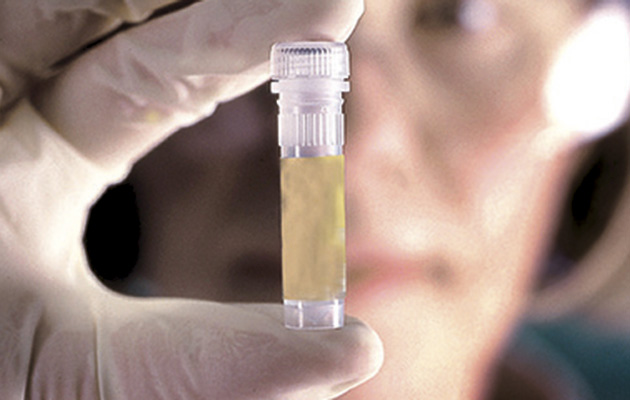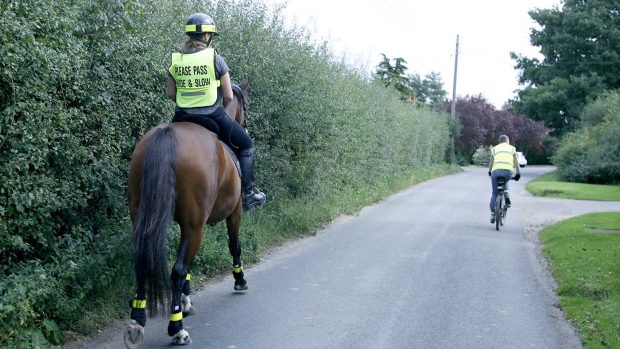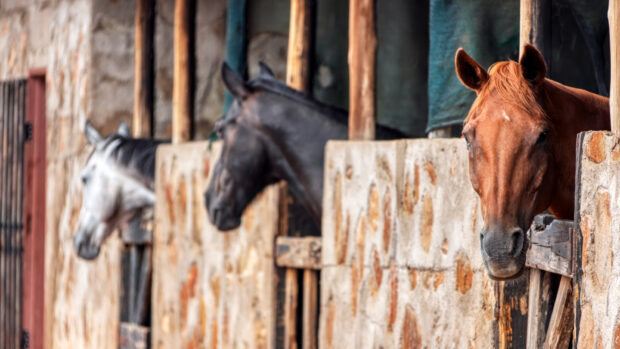Top equine vets say they are “perplexed” over the suspension of sale of a “vital” painkiller, with no consultation with their profession.
On 26 July, the Veterinary Medicines Directorate (VMD), which is part of Defra, suspended the sale of all injectable forms of flunixin, “without warning”, according to the British Equine Veterinary Association (BEVA).
Flunixin is the most commonly used painkiller for horses undergoing surgery and those suffering with colic and other conditions.
BEVA is calling for this suspension to be lifted for horses who are not destined for the human food chain, to “reduce the potential impact on equine welfare”.
“BEVA is fully supportive of all attempts to promote food safety, but flunixin is widely viewed as the gold-standard painkiller in horses and is commonly used in horses undergoing both elective and emergency surgery, for the crippling pain associated with laminitis and for severe forms of colic,” said BEVA president Jonathan Pycock.
Flunixin is widely used in equine veterinary medicine owing to its potent painkilling effects, and it is the only medicine licensed to treat sepsis.
“The VMD’s decision reflects European Medicines Agency guidance relating to the human safety of the solvent used in the injectable formulation, not the active ingredient,” said a BEVA spokesman, adding that no recall notices had been issued by last Friday, which means vets can still prescribe the medicine from their stock, although disruptions in supply “will result in shortages of this medicine in clinical practice”.
Continues below…

Rider stored equine remedy in painkiller bottle: banned for 15 months
An amateur rider who stored a homeopathic remedy in an empty tramadol bottle has been disqualified from competition for 15

Drug-testing rules are branded as ‘onerous’ by riders
Riders are branding changes to the world anti-doping code for out-of-competition drug-testing as “onerous and over-complicated”

Owner’s hairspray causes showjumper’s positive dope test
The rider and the owner’s wife were unaware he was using the product
“BEVA is calling on the VMD to immediately enable limited batch release of flunixin for use in horses not destined for the human food chain in the interests of animal welfare,” Dr Pycock said.
“The equine veterinary profession has always been open to consultation with the VMD on a range of important matters relating to responsible medicine use, antibiotic resistance, horse identification, passports and the horse meat issue.
“BEVA is perplexed as to why the VMD failed to consult with the equine veterinary industry on the animal welfare impact of withdrawing such an important drug.”
H&H has contacted the VMD for comment.
For all the latest news analysis, competition reports, interviews, features and much more, don’t miss Horse & Hound magazine, on sale every Thursday.




